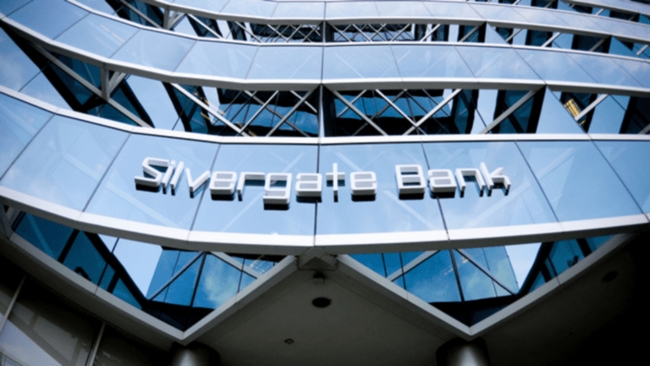Highlights:
- SEC sued Silvergate and ex-executives for misleading investors on compliance and FTX losses.
- The bank failed to detect $9B in FTX-related suspicious transfers.
- Silvergate settled SEC charges for $50M; fined $63M by Fed and California regulator.
The US Securities and Exchange Commission is suing Silvergate, a California lender that was done in by the collapse of crypto exchange FTX. https://t.co/P6rWlNLXtG
— Bloomberg Markets (@markets) July 1, 2024
The US Securities and Exchange Commission (SEC) filed a lawsuit against Silvergate Capital Corporation, the parent company of crypto-friendly Silvergate Bank, along with former CEO Alan Lane, former CFO Antonio Martino, and former COO Kathleen Fraher for alleged securities fraud.
The SEC stated:
“In addition, through the results of multiple examinations of Silvergate by the Federal Reserve, through the Federal Reserve Bank of San Francisco (the ‘FRBSF’), Lane and Fraher should have known that there existed critical deficiencies in the Bank’s BSA/AML compliance program.”
In a July 1 filing in the US District Court for the Southern District of New York, the SEC alleges that Silvergate and its former executives Lane and Fraher misled investors regarding the strength of its Bank Secrecy Act (BSA)/Anti-Money Laundering (AML) compliance program and the “monitoring of crypto customers” like FTX. The regulator charged Martino with “misleading investors about the company’s losses from expected securities sales” after FTX’s collapse.
Bank Fails to Detect $9B in Suspicious Transfers Among FTX Entities
The SEC alleges that Silvergate’s automated transaction monitoring system failed to oversee over $1 trillion in customer transactions on the Silvergate Exchange Network (SEN).
According to SEC enforcement director Gurbir Grewal, Silvergate allegedly failed to detect nearly $9 billion in suspicious transfers among FTX and its related entities, resulting in massive losses for investors. He said the bank and executives “doubled down” on misleading investors after FTX’s failure from November 2022 to January 2023.
Silvergate and Former Executives Agree to Over $50M SEC Settlement
Silvergate Capital, Fraher, and Lane agreed to settle with the SEC without denying or admitting the agency’s allegations. Martino did not agree to settle. According to the SEC, Silvergate agreed to pay $50 million in fines.
Meanwhile, Lane and Fraher agreed to pay $1 million and $250,000, respectively, and accepted permanent injunctions. On the other hand, Martino has chosen to challenge the regulator’s allegations regarding misleading investor communications.
Fed and California DFPI Fine Silvergate $63M
In addition to the SEC suit, the Federal Reserve Board and the California Department of Financial Protection and Innovation (DFPI) fined Silvergate $63 million on Monday. The Fed stated that the bank failed to comply with AML laws.
Silvergate faced penalties of $43 million from the Federal Reserve and $20 million from the California regulator. According to multiple sources, the bank can offset the $50 million it owes to the SEC by paying the fines imposed by the Federal Reserve and DFPI.
Silvergate Capital Corporation ‘Voluntarily Liquidate’ Silvergate Bank
In March 2023, Silvergate voluntarily liquidated as several crypto firms, including Coinbase, Paxos, Gemini, BitStamp, and Galaxy Digital, announced they intended to cut ties to the bank, alleging links to FTX exchange. FTX collapsed and filed for bankruptcy in November 2022. Several executives, including former CEO Sam Bankman-Fried, faced criminal charges, with Bankman-Fried currently serving a 25-year sentence in federal prison.
UPDATE: Employees at Silvergate $SI have been told to prepare for liquidation and shutdown imminently.
**Source: “we’ve been told that an orderly liquidation will be announced and our charter will be handed over to the FDIC.”
**employees have been given their WARN Act…
— Andrew (@AP_Abacus) March 8, 2023





